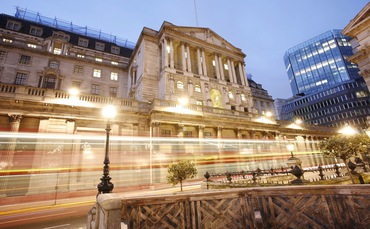Analysts had expected just a 0.2% decline in GDP, but today (13 September), the Office for National Statistics reported a 0.5% drop in July, as wet weather and strikes impacted productivity and spending.
Marcus Brookes, CIO of Quilter Investors, described the poor figures as the UK economy "buckling under the strain of repeated interest rate increases".
Derrick Dunne, CEO of YOU Asset Management, warned that since the effects of rate hikes take up to a year to fully effect the real economy, "it is possible today's drop will only be the tip of the iceberg in terms of economic pain".
UK GDP sags by 0.5% in July as recession looms 'around the corner'
Melanie Baker, senior economist at Royal London Asset Management, described the data as "not awful, but not great", as had been the case in previous months. She also said it was "somewhat surprising" that the UK economy has managed to avoid recession so far.
There are still "a few data points to go" before the Bank of England's interest rate decision last week, she said, notably August's inflation figures set to be released the day before, on 20 September.
"I expect the Bank of England to hike rates again by the end of the year, though they might choose to keep rates on hold in September and wait for more data and their next forecast round in November," she added.
"Ultimately, I think the domestic inflation picture remains too strong for them to be comfortable keeping rates at their current level," she concluded.
Charles Hepworth, investment director at GAM Investments, agreed, adding that a further hike next week of 25bps was still the firm's base case.
He argued the decline in growth would normally lead to the Bank to pause its hiking cycle, but the UK's sticky inflation, currently at 6.8%, and accelerating wage growth meant "we do not see that as likely just yet".
Market projections for the next MPC meeting currently sit at 19bps, indicating a hike was still very likely, while one more hike priced in by the February meeting next year.
Grocery price inflation drops to lowest level in over a year
However, Brookes argued that the central bank was "no longer in a clear space where interest rate hikes are unequivocally necessary", pointing to recent nuanced language from governor Andrew Bailey.
Jeremy Batstone-Carr, European strategist at Raymond James Investment Services, agreed, arguing that the BoE should be "careful of further rate hikes" with the weak state of the economy in mind.
However, he also pointed to the 8.5% wage growth between May and July, which he said left "little room for error amongst interest rate-setters".
"For the Bank of England, the balance between fighting inflation without inhibiting economic growth is becoming increasingly tough, and so we hope today's release will offer food for thought as to whether high inflation - and subsequently, wage growth - are the most pressing issues on a forward-looking basis," added Dunne.


